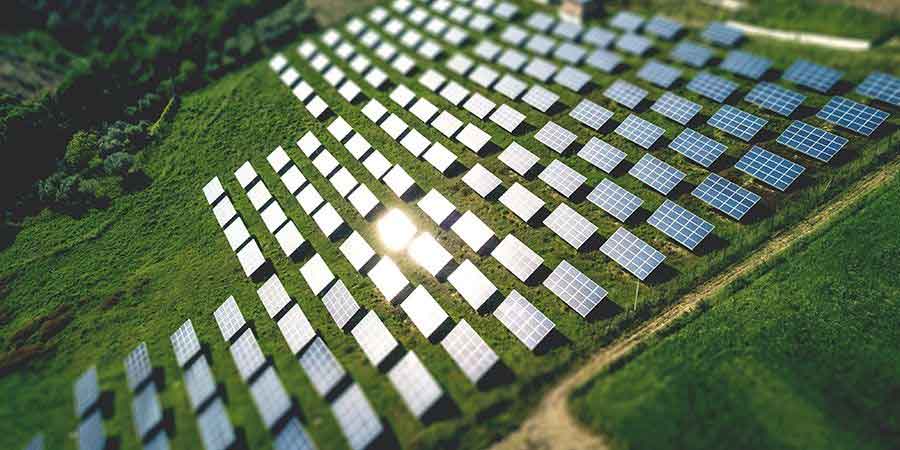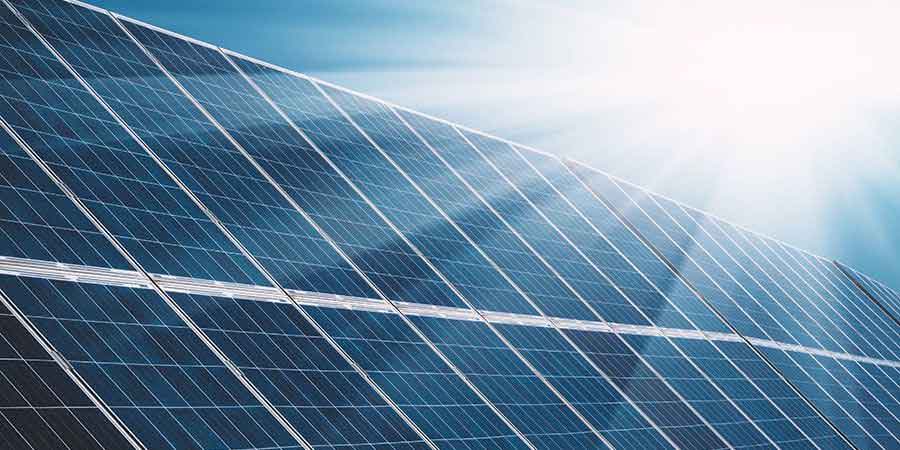Community Solar vs. Rooftop Solar
What are the Differences Between Rooftop Solar and Community Solar?
If you are thinking of going solar, you may be weighing several options. Community Solar is a way for residents to participate in a renewable energy program without the need to install rooftop solar panels or solar shingles on their property. This means that even residents that are not homeowners can become part of a Community Solar farm. Clearway Community Solar offers solar farm subscriptions in Illinois, Massachusetts, Minnesota, and New York, and not only has built some of the country’s largest Community Solar farms but is the largest Community Solar owner in the United States. While Community Solar has not been around as long as rooftop solar and the growth and adoption of the program is due to the conveniences it offers and the differences between a Community Solar program and a rooftop solar program.
Community Solar vs. Rooftop Solar
Whether you are interested in supporting clean energy, lowering your carbon footprint, or simply living a more environmentally-friendly lifestyle, you might consider solar as an option for your home. From installation and costs to the qualification and enrollment process, see how rooftop solar systems differ from Community Solar.
 Community Solar Farms |  Rooftop Solar Systems |
|---|---|
Community Solar farms are offsite solar arrays that provide solar energy directly to a local power grid and a wider community, rather than one individual home. Farms are built and operated by dedicated professional teams. | Rooftop solar panels are installed on the roof of a home or business, and generate power for that location only. Panels are purchased or leased and may require inspections, upfront costs, and maintenance by the owner. |
How Is Community Solar Different Than Rooftop Solar?
Both Community Solar and rooftop solar provide 100% renewable power supply, help reduce energy dependence on fossil fuels, and both can help lower electric bills. Where they differ begins with the location and ownership of the solar installations and expands to the practicality of each program to ultimately help a resident determine what is right for them. How much are solar panels in Massachusetts for example, vs. the cost of a Community Solar subscription in the same state? Let’s take a look at some of the facts below.
Community Solar
Community Solar is designed to be more accessible for renters and homeowners alike, through solar farm subscriptions that eliminate the need for a rooftop installation. Clearway Community Solar offers the benefits of no upfront costs, no home visits, and no enrollment fees. Community Solar farms are built and operated by companies like Clearway in offsite regional locations on unused land. Because Clearway maintains the solar farm year-round in all weather conditions, system maintenance is not a concern for a resident. Once a solar farm has completed construction, undergone interconnection, and is placed in service, the solar energy produced is sent directly to the local power grid. In return for the subscription, residents receive bill credits applied to their utility bill. The solar credits help lower electricity costs and often offset the cost.
Rooftop Solar
Rooftop solar requires solar panels to be installed on your roof. There are some instances where you place solar installations elsewhere on your property, but this is less common. The solar energy that is collected from the panels helps offset the energy usage in your home. The typical life expectancy for this type of system is 25-30 years.
You can choose to purchase or lease a rooftop system, or finance it using solar loans. The costs and terms will vary and it is important to understand who will be responsible for maintenance and repairs. If you purchase your rooftop solar system, you will need to maintain the system, in all weather conditions. If the system has been leased, it is the responsibility of the solar company that owns the system to maintain it.
Some residents might find barriers to rooftop systems. In fact, a study by the NREL found that only 57% of the residential homes in the US are suitable for solar PV. If you are a renter, it is likely not an option for you. More often, interested residents are impacted by shading – rooftop solar requires minimum shading, or frequently the age of a home. And of course, you should always check with your HOA to ensure that there are no restrictions, and consider the potential impact on resale value and roof damage. Learn more about differences between rooftop solar and community solar here.
How Much Do Rooftop Solar Panels Cost?
Costs for rooftop solar vary by state. As demonstrated in the chart below, the average solar panel cost in Massachusetts, for example, is lower in New York, but higher than Minnesota or Illinois. The below chart shows the average cost per watt, along with the average cost of solar panels before any tax credits. This data was provided by solarreviews.com and is based on solar panel systems that are between 4 kW to 20 kW.
| State | Average Cost Per Watt | Average Cost Before Tax Credits |
| Illinois | $2.47 | $12,391 |
| Massachusetts | $3.22 | $15,570 |
| Minnesota | $2.96 | $13,748 |
| New York | $3.40 | $17,326 |
Solar panel cost can be offset by incentives, however, the federal tax credit for solar panels installation will be eliminated by 2022. Each state offers its own variable incentives. Massachusetts solar panel cost is offset by a maximum of $1000 tax credit. New York subsidizes solar panel cost depending on the size of the system and what is already available in the area for solar resources. Illinois uses Net Metering to have utility companies buy back excess energy if any excess is produced. Minnesota removes sales tax for solar panel purchases.
As you can see, pricing for solar panel installation can vary considerably depending on where you live, along with the size of the system that you need.
Benefits of Community Solar vs Rooftop Solar
What makes Community Solar a good option for your home? Whether you own or rent your property, Community Solar is an accessible solar option if your roof does not meet qualifications due to your home's age or access to sunlight. Even if your roof does qualify, you may not want to be responsible for the maintenance of solar panels or manage the upfront costs. Or plain and simply, you might just not like the way rooftop panels look on your property.Clearway Community Solar
No rooftop panel installation or maintenance required by homeowner.
No upfront costs or hidden fees.
Long-Term price security.
Conventional Rooftop Solar
Maintenance expense may be required.
Large installation costs may apply.
Long-Term price security.
The Solar Power Authority, an online marketplace, shares, “If you prefer lower costs, less maintenance, and cleaner home aesthetics, investing in a remote solar farm is probably the better choice.” For Clearway, Community is key in “Community Solar.” Being part of a solar farm is a collective effort that drives connection between neighborhoods and wider municipalities. It offers an “all together” approach instead of every man for himself. As we consider the many impacts of climate change, we see states and nations coming together to make a difference. However you choose to support renewable power, you can be part of a clean energy future through rooftop panels or a Community Solar program.



